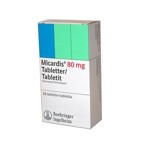Diabetes Type 2 with Complications


Diabetes Type 2 is a chronic condition that affects the way the body processes blood sugar (glucose). In this type of diabetes, the body either becomes resistant to insulin or does not produce enough insulin to maintain normal blood sugar levels. Unlike Type 1 diabetes, where the body fails to produce insulin, Type 2 diabetes typically develops over time and can often be managed through lifestyle changes, medications, and, in some cases, insulin therapy. However, if left untreated or poorly managed, Type 2 diabetes can lead to a wide range of serious complications that impact the quality of life and overall health.
What is Type 2 Diabetes for Beginners?
Type 2 diabetes is a metabolic disorder that results in high blood sugar levels due to either insulin resistance or an inadequate production of insulin. The insulin hormone, which is produced by the pancreas, helps regulate blood sugar by allowing glucose to enter the cells of the body for energy. In Type 2 diabetes, the cells become resistant to the effects of insulin, making it more difficult for glucose to enter the cells. As a result, glucose accumulates in the bloodstream, leading to elevated blood sugar levels, which, if left unchecked, can damage various organs and systems in the body.
Risk factors for Type 2 diabetes include a sedentary lifestyle, obesity, poor diet, genetics, and age. Typically, this condition is diagnosed in adults, although it is increasingly being observed in children and adolescents due to rising rates of obesity. It is important to note that while Type 2 diabetes is a lifelong condition, it is possible to manage it effectively through lifestyle changes, medications, and regular monitoring of blood sugar levels.
How Does Type 2 Diabetes Affect Your Quality of Life?
The impact of Type 2 diabetes on quality of life can be profound. The disease is often associated with several daily challenges that can affect physical, emotional, and mental well-being. One of the most significant effects of Type 2 diabetes is the constant monitoring of blood sugar levels. People with diabetes are required to check their blood sugar levels frequently, which can be time-consuming and sometimes painful. Additionally, managing the condition often requires strict adherence to dietary restrictions, regular exercise, and consistent medication use.
One of the major challenges faced by individuals with Type 2 diabetes is managing the risk of complications. Over time, uncontrolled blood sugar can damage the body’s blood vessels, nerves, and organs, leading to serious and sometimes life-threatening conditions. This ongoing threat of complications can create emotional stress, anxiety, and a sense of helplessness in those living with the disease.
Furthermore, diabetes can lead to fatigue, frequent urination, blurred vision, and slow wound healing. These symptoms can significantly affect daily activities, work, and personal life. Additionally, many individuals with diabetes also experience feelings of depression and isolation as they cope with the chronic nature of the disease and the lifestyle changes it demands.
What Are Diabetes 5 Complications?
When left untreated or poorly managed, Type 2 diabetes can lead to a number of serious complications. These complications can affect various organs and systems in the body, often leading to long-term disability or even death. Some of the most common and serious complications associated with Type 2 diabetes include:
- Cardiovascular Disease: People with Type 2 diabetes are at a significantly higher risk for developing heart disease and stroke. Elevated blood sugar levels can damage the blood vessels and nerves that control the heart, leading to issues such as high blood pressure, atherosclerosis (narrowing of the arteries), heart attack, and stroke.
- Kidney Disease (Diabetic Nephropathy): High blood sugar levels can damage the blood vessels in the kidneys, impairing their ability to filter waste from the blood. This can lead to kidney disease, which in severe cases may result in kidney failure. In such cases, dialysis or a kidney transplant may be required.
- Nerve Damage (Neuropathy): High blood sugar can cause nerve damage, particularly in the extremities (hands, feet, and legs). This condition, known as diabetic neuropathy, can lead to numbness, tingling, pain, and even loss of feeling in the affected areas. In severe cases, it can lead to infections, ulcers, and amputations.
- Eye Problems (Diabetic Retinopathy): Diabetes is a leading cause of blindness in adults. Elevated blood sugar levels can damage the blood vessels in the retina, leading to diabetic retinopathy. This condition can result in vision problems and, if left untreated, blindness. People with diabetes are also at higher risk for cataracts and glaucoma.
- Poor Circulation and Wound Healing: High blood sugar can affect blood circulation, leading to slower wound healing and an increased risk of infections. This is particularly dangerous for individuals with diabetes, as even small cuts or injuries can become serious if they do not heal properly. Poor circulation can also increase the risk of gangrene, which may require amputation.
In addition to these five major complications, Type 2 diabetes can also increase the risk of other conditions such as dental problems, skin conditions, and sexual dysfunction. It is crucial for individuals with diabetes to work closely with their healthcare providers to manage their blood sugar levels and reduce the risk of these complications.
The Role of Micardis in the Treatment of Type 2 Diabetes
Micardis, also known as telmisartan, is an angiotensin II receptor blocker (ARB) that is often used in the treatment of high blood pressure (hypertension). Hypertension is a common condition in individuals with Type 2 diabetes, and managing blood pressure is crucial in reducing the risk of complications associated with the disease. Micardis works by blocking the action of a hormone called angiotensin II, which is responsible for narrowing blood vessels and raising blood pressure.
By blocking angiotensin II, Micardis helps to relax the blood vessels, lower blood pressure, and improve blood flow. This is particularly beneficial for individuals with Type 2 diabetes, as high blood pressure can worsen complications such as cardiovascular disease, kidney disease, and diabetic retinopathy. In addition, Micardis has been shown to have protective effects on the kidneys, which is especially important for people with diabetes who are at risk for diabetic nephropathy.
Micardis is typically prescribed alongside other medications, lifestyle changes, and regular monitoring of blood pressure. It is important to note that while Micardis can help manage blood pressure and reduce the risk of complications, it is not a cure for Type 2 diabetes. Individuals with diabetes must continue to manage their blood sugar levels through diet, exercise, and, if necessary, insulin or other medications.
Conclusion
Type 2 diabetes is a serious condition that, when left unmanaged, can lead to a wide range of complications that significantly affect the quality of life and overall health. The complications of Type 2 diabetes, including cardiovascular disease, kidney disease, nerve damage, eye problems, and poor wound healing, can be debilitating and life-threatening. However, with proper management, including lifestyle changes, medication, and regular monitoring, it is possible to prevent or delay the onset of these complications.
Micardis, an angiotensin II receptor blocker, plays a vital role in managing hypertension in individuals with Type 2 diabetes, reducing the risk of complications related to high blood pressure. As with any chronic condition, the key to living a healthy life with Type 2 diabetes is to stay informed, work closely with healthcare providers, and make proactive changes to one’s lifestyle to keep blood sugar levels and blood pressure in check.
By actively managing Type 2 diabetes and its complications, individuals can maintain a better quality of life and reduce the long-term health risks associated with the condition.
Medically Reviewed by Dr. Mevan Nandaka Wijetunga, MD
(Updated at Jul 4 / 2025)

